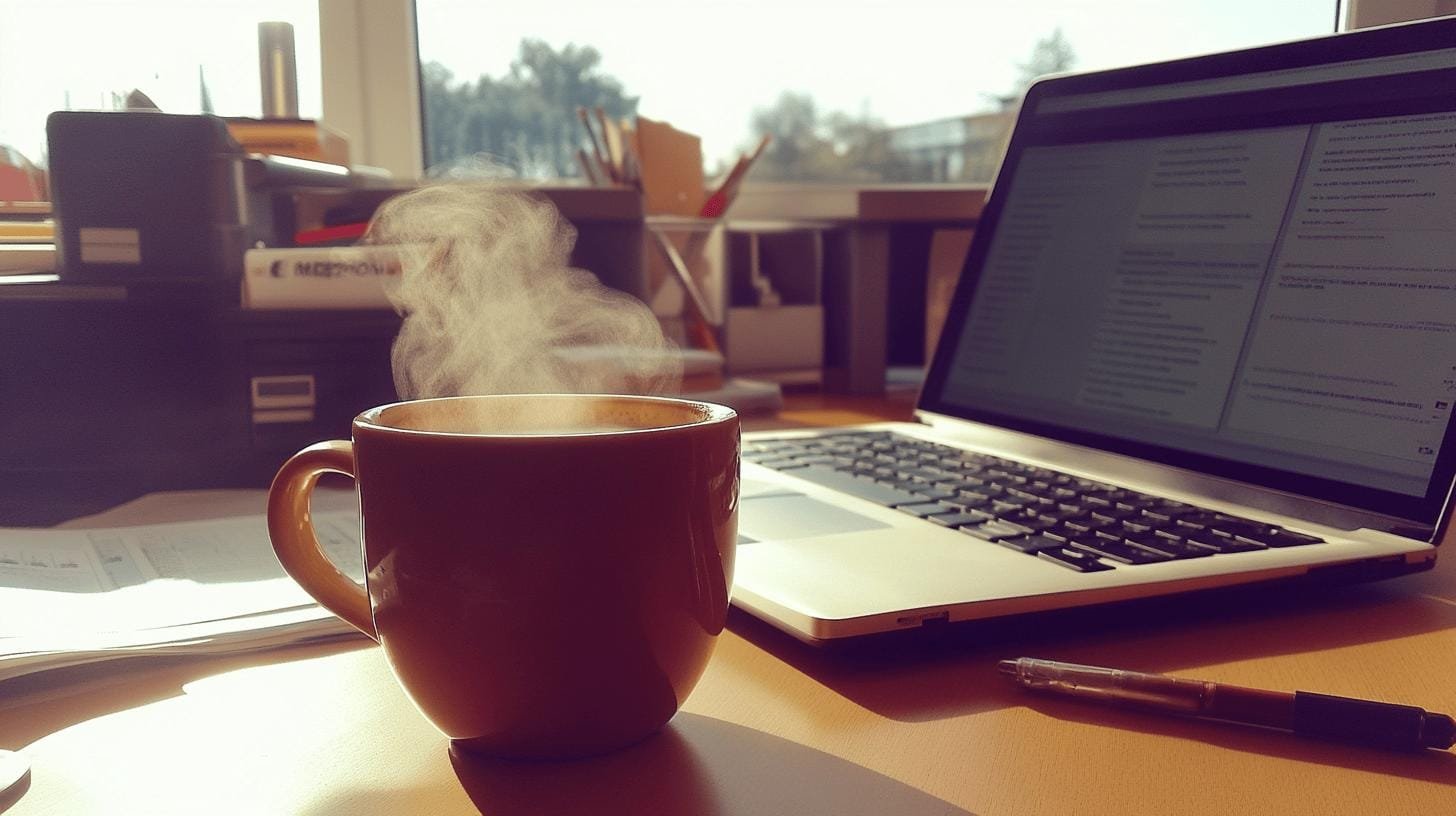
Artisanal Rituals for a Memorable Customer Experience
How can brands create a more balanced and memorable customer experience by blending artisanal product quality with thoughtful everyday rituals that keep people coming back?

Does caffeine make stress worse? The widely cherished caffeine jolt that kickstarts your day might have unforeseen repercussions. By diving into how caffeine acts upon the nervous system, this article explores whether caffeine really exacerbates stress and anxiety. While caffeine boosts alertness and accelerates heart rate, is it simultaneously amplifying stress for some? Armed with surprising insights backed by science, unravel the complexities of individual sensitivity to caffeine, and discover how this popular stimulant might be influencing your stress levels more than you realize.
Caffeine is known to stimulate the central nervous system by blocking adenosine receptors. This action prevents drowsiness, leading to increased brain activity and adrenaline release. As a result, people often feel more alert and energetic, making caffeine useful for a quick boost or better focus.
However, caffeine’s stimulating effects can also increase stress and anxiety. It speeds up the heart and heightens alertness, which can mimic stress symptoms. For those sensitive to caffeine, these effects can heighten anxiety, restlessness, and nervousness. This is particularly true if caffeine intake goes over 400 mg per day, which can cause stress levels to spike.
How people respond to caffeine varies widely. Factors like genetics, tolerance, and stress levels all play a part. Some feel stressed after little caffeine, while others handle more without problems. This difference makes it important to customize caffeine use based on individual health and stress management needs.

How does caffeine affect stress hormones? When you consume caffeine, your body releases more cortisol and adrenaline, leading to a “fight-or-flight” response. This can increase blood pressure and sugar levels, adding to stress. Studies show even one caffeine dose can raise cortisol levels, worsening stress symptoms.
Regular use of caffeine can lead to tolerance. Many people build a partial tolerance to the cortisol effects from regular caffeine use. Although its effects lessen with regular intake, they’re not gone entirely. So, while the immediate impact reduces, caffeine can still affect stress levels. Tolerance varies, with some people noticing greater decreases in cortisol spikes than others.
Caffeine can mimic or worsen anxiety symptoms. It speeds up the heart and increases alertness, causing sensations like nervousness. Some people may feel jittery or anxious after consuming caffeine, especially in high doses or if they are sensitive to its effects.
Common symptoms of caffeine-induced stress include:
People with anxiety disorders might feel these effects more sharply. For them, caffeine can worsen anxiety, making stress management harder. This highlights the need to monitor caffeine, especially for those already dealing with anxiety challenges, to manage its effect on their well-being.

Adjusting caffeine intake can help with stress. Moderating caffeine is key in managing stress. Moderate consumption reduces CNS overstimulation, which can increase stress. Timing also matters; experts suggest avoiding caffeine in the afternoon and evening to avoid sleep issues. Managing both amount and timing can help reduce anxiety and restlessness.
Herbal teas and decaffeinated drinks provide stress relief without caffeine’s stimulation. Teas like chamomile and peppermint can calm stress and anxiety. Decaffeinated coffee offers a similar experience to regular coffee without caffeine’s effects. These alternatives allow for a warm drink while minimizing caffeine, helping to manage stress.
Cutting caffeine helps to lower stress. Reducing caffeine can improve stress levels. Fewer anxiety symptoms, better sleep, and a more balanced mood often follow reduced intake. For those sensitive to caffeine, this can enhance emotional well-being and reduce stress-related issues.
Caffeine impacts stress response by activating stress hormones like cortisol and adrenaline. This can elevate blood pressure and sugar levels, making recovery from stress harder. Such ongoing activation can make managing stress and relaxation difficult.
Long-term, regular caffeine can contribute to stress-related issues. Constant hormone stimulation can cause chronic stress, linked to health problems like heart disease and weakened immunity. Understanding these effects underlines the need to control caffeine for stress and health.
Exploring how caffeine affects stress levels reveals significant insights. As a stimulant, caffeine increases alertness but can exacerbate stress and anxiety, especially in sensitive individuals. It elevates stress hormones like cortisol and adrenaline, which, despite potential tolerance in regular users, can still pose challenges. Moreover, symptoms like nervousness and restlessness mimic anxiety, complicating stress management further.
Mindful caffeine consumption, including moderation and exploring alternatives like herbal teas, offers practical stress reduction strategies. Understanding caffeine’s role in stress response encourages balanced consumption, fostering improved well-being. The question of does caffeine make stress worse emphasizes the nuanced relationship between caffeine and stress, highlighting the importance of personal awareness.
Caffeine increases cortisol, a stress hormone that can contribute to weight gain around the belly area. Elevated cortisol may influence metabolic processes, leading to potential weight gain over time.
Caffeine-induced anxiety can last up to several hours depending on individual sensitivity and caffeine intake level. Once caffeine is metabolized and eliminated, symptoms generally subside.
Caffeine can exacerbate stress and anxiety by increasing heart rate and alertness. Sensitive individuals may experience heightened anxiety with large caffeine consumption.
Changes in metabolism, stress levels, or increased sensitivity can cause sudden anxiety from caffeine. Reducing intake or switching to low-caffeine alternatives can help.
Caffeine can heighten anxiety and agitation, potentially leading to intrusive thoughts or obsessive thinking patterns in susceptible individuals. Reducing intake can alleviate these effects.

How can brands create a more balanced and memorable customer experience by blending artisanal product quality with thoughtful everyday rituals that keep people coming back?

Independent coffee shops have always been about more than caffeine—they’re hubs of creativity, connection, and care. As café culture continues to evolve, new trends are

Introduction Independent cafes win when they feel like the neighborhood’s living room and operate with the discipline of a great kitchen. Below is a quick

Discover how top specialty coffee brands create lasting loyalty through storytelling, sourcing, and community connection. Real tips from 6 industry experts.

Discover the ultimate showdown between two beloved coffee brewing methods: the French press and Chemex. Explore how each technique caters to distinct palates, with the French press delivering bold flavors and the Chemex presenting a bright, clean taste.

Unlock the secrets to brewing the perfect cup of coffee with our comprehensive guide on using a coffee scale. Discover how precise measurements enhance flavor and consistency while eliminating bitterness.

Discover how water temperature plays a vital role in brewing the perfect cup of coffee. This article delves into the ideal temperature range of 195°F to 205°F for optimal flavor extraction, enhancing the enjoyment of high-quality beans.

Discover the world of curated specialty coffee bundles, perfect for enthusiasts seeking quality and craftsmanship. This article explores the benefits of ethically sourced, small-batch beans from brands like Equipoise Coffee, offering diverse flavor profiles that elevate your brewing experience.

Discover the art of manual brewing to elevate your coffee experience! This article explores various techniques like pour-over, French press, and AeroPress, revealing how they enhance flavor and your connection to every cup.